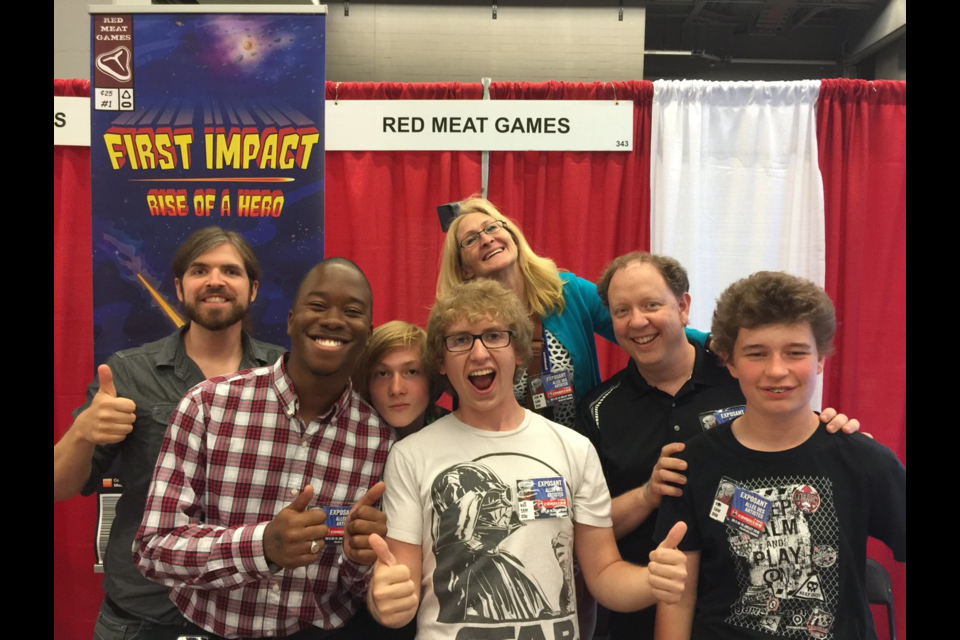Cambridge video game developer Red Meat Games wants to see the city grow its tech industry and is looking to launch a new division along with a few new games coming later this year.
Red Meat Games was founded in 2013 in Newfoundland. After almost 10 years in the game, they have offices in Nova Scotia, and developers spread throughout Ontario.
Norma Rossler is a founding member of Red Meat Games and has called Cambridge her home for over 10 years.
She has worked in the gaming industry for over 20 years and when she arrived in Ontario, she decided to create her own company.
Now Red Meat is ready to launch a new division of their company called Giggling Piglets with their first title 'Finding Heidi.'
This division will focus on wholesome games, a community that started on Twitter when indie game developers began curating games according to their feelings of comfort, compassion, and coziness.
“We make games for PC, mobile and console. We’d actually consider ourselves more experimental,” Rossler said.
One of the games they have recently released is called Sentience. A multiplayer game that is set in a robot-controlled dystopian world.
It is a hide and seek game where two teams are battling against each other, one is trying to blend in with other's Artificial Intelligence while the other needs to sniff out the fakes.
This game works great when players are communicating with each other through platforms like Discord. It allows players to stay connected even in times when they can't get together in person, Rossler said.
She believes many players, stuck at home during the pandemic, were able to find a sense of community through video games and virtual worlds.
But it also prevented indie game developers and players from interacting in person at conventions and shows.
These are very important to the industry to showcase their upcoming games and meet with the community, Rossler said.
“I think as game developers, the thing that we need is to hear what people actually think and to experience people playing our games," Rossler said. "Being at those physical activities, those physical venues, and seeing the passion of a child or an adult who's just done VR for the first time is so meaningful.”
Allister Scorgie agrees.
The vice-chair of the Waterloo Region Esports Commission said their goal is to make Waterloo region a powerful force in the Esports world.
“Whether that's hosting events, youth programming, recreational programming, supporting the academic sector with degrees in Esports or related to Esports job creation. We really want to leverage Esports and gaming to be something that's good for Waterloo region and for all the communities that are a part of it,” Scorgie said.
He wants to see the region become a gaming destination, host to developers, teams and live events.
Rossler speaks highly of the amount of tech companies and the industry in the region but has always felt like Cambridge has been left behind.
“A lot of our resources in our municipality are going to Waterloo and Kitchener with respect to tech and they're not going to Cambridge. Cambridge is one of the most beautiful cities in Canada, full of smart people, but all of the credit is going elsewhere,” she said.
She wants to see Cambridge be up there with its sister cities and create a thriving community for tech and wants to grow Red Meat Games with a goal of one day opening a main office here.
Looking to the future, Rossler is excited to show off their games in person and see people playing them.
Another title they are planning to release this summer is called ‘Project Dark.’
She doesn’t want to give too much away about this experimental game, but said, it’s an interactive, innovative title that uses viral sounds.
Being an indie game developer gives them the creative freedom to make whatever games they want, as long as they have the funds to do so.
They also compete with developers from around the world. The one thing they can do to stand out is to make great games, said Rossler.
“The standing out comes over time. It's now become a time where we've been developing our personality and people are starting to say, hey I've heard of them,” said Rossler.
The indie gaming industry allows people to be as creative and experimental as they want. It becomes a breeding ground for fresh ideas without having to appease a board of shareholders, Rossler said.
“I think the heart of an indie game is in the individuals, the players and the creative employees. It is absolutely amazing how many creative, smart people there are in this world, and they focus on making people happy or make them thoughtful or make them experience something new. We're always trying to say, let's try something else and it is risky because the video game industry is huge and we're the small guys,” said Rossler.


.jpg.png;w=120;h=80;mode=crop)